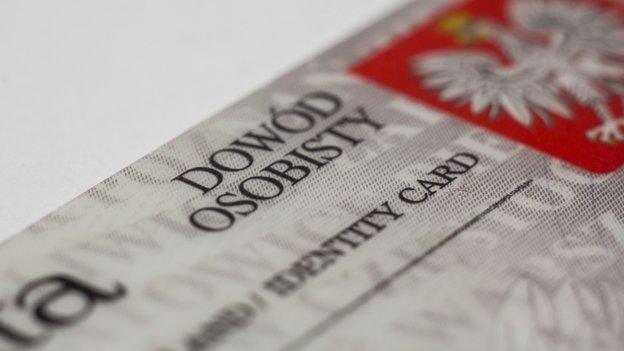How does immigration affect public services?
- Published
A poll, commissioned by BBC Scotland, suggests most Scots believe migrants should wait at least a year before using public services
The majority of Scots believe migrants should have to wait some time before they can use public services, according to a BBC Scotland poll.
The survey suggests 55% think migrants should have to wait a year or more before they are allowed to use them.
Just 15% thought they should be allowed to use them as soon as they settled.
The findings suggest Scots are only slightly more supportive of the right of immigrants to use public services than people across the UK as a whole.
A similar poll carried out across the whole of Britain last year - using the same question - suggested 59% thought migrants should have to wait a year to use services.
So what kinds of extra pressures are migrants creating for public services including the NHS, schools and councils?
Public services are under pressure - in recent years budgets have been squeezed.
Some services, especially health and social care, also face longer term challenges as more people are living for longer.
But does immigration lead to even greater pressure on public services? And are services struggling to cope?
Or are immigrant workers in the health service essential to keeping it going? And is more immigration essential to pay taxes and provide care services in future?
There is an important distinction to be made between overall pressure on public services - caused by the demand for them - and any challenges which may be specifically related to immigration.
Where the challenge is about the simple demand, for instance straightforward requirements on the NHS, that challenge would be the same whether the reason for extra demand was immigration or some other rise in the population such as a rise in the birth rate or an increase in the local population caused by a new housing development.
But there can be special requirements too caused by immigration - especially when people cannot speak English.

Welcome to Scotland?
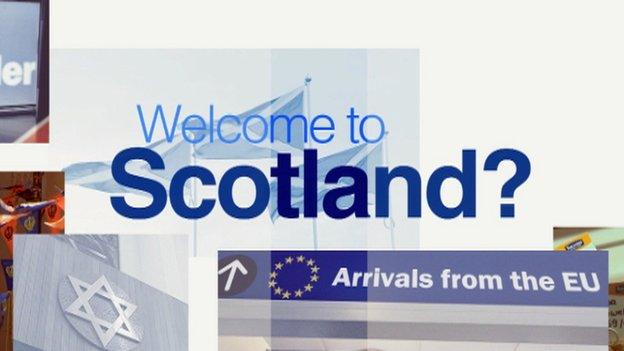

Education is the biggest single service provided by councils.
According to figures from the Scottish government, 139 languages are spoken by children in Scotland's schools.
For example, 11,500 come from homes where Polish is the main language, 5,400 where Urdu is the main language and 4,100 Punjabi.
Many councils employ teachers specifically to help - teachers of English as an Additional Language (EAL).
Glasgow has the largest number of immigrants in Scotland and the council currently employs the equivalent of 110 full time EAL teachers - roughly as many as Scotland's 31 other councils put together. Indeed some councils have cut their number recently.
Glasgow receives some additional funding to pay for EAL teachers but argues it is not enough. Ultimately, if 110 EAL teachers earn an average of £30,000 a year each that alone costs more than £5m - money which could otherwise be spent elsewhere.
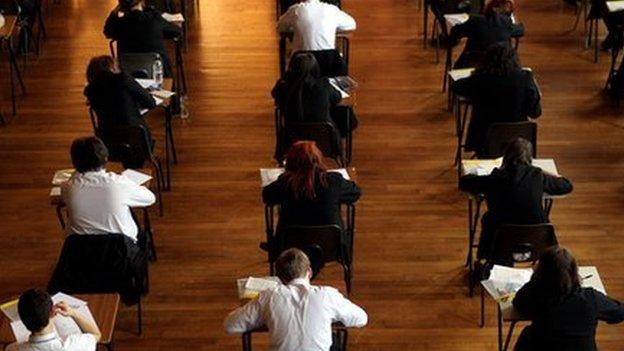
Education is the biggest single service provided by councils
The principal extra cost associated with educating the children of immigrants is in the employment of EAL teachers.
Inevitably, this leads to a particular challenge: with finite resources, there is always a balance to be struck deciding on competing spending priorities. For instance, Glasgow questioned whether reducing class sizes in the early years of primary school was the best use of scarce resources.
Glasgow stresses its concern is the overall level of council funding, not the need to help immigrants. The council says direct support for immigrants is "a fraction of a percent" of its £2.2bn budget.
The NHS too faces challenges.
However, the basic needs of most people are the same: registering with a GP, treating serious conditions, dealing with accidents and emergencies.
There are no figures which single out the number of people from immigrant backgrounds who are treated.
Healthcare challenges
Again, the most obvious challenge is help for those whose English is not good. This creates the need for interpreters and for leaflets to be translated into several languages.
Occasionally very specific healthcare challenges come into focus.
For example, work has been done supporting South Asian families - including those who are the descendants of immigrants - who are particularly prone to developing Type 2 diabetes.
Against that, some immigrants come from cultures where people are far less likely to smoke or drink and younger immigrants are less likely to suffer from conditions such as obesity which are a big challenge for the NHS.
For instance, Scottish government figures suggest 4% of Chinese Scots are obese against a national average of 27% while 48% of Pakistani people eat five or more portions of fruit and vegetables daily against a national average of 22%,
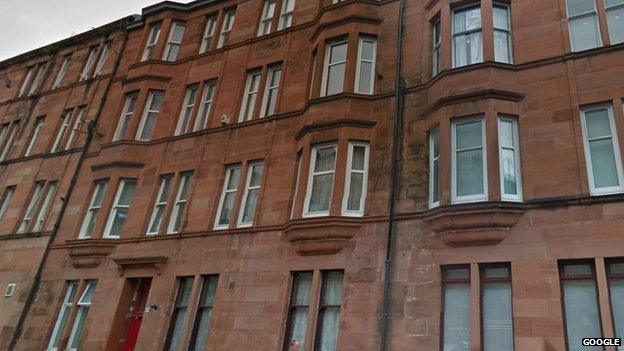
Tackling rogue landlords and slum housing in the Govanhill is a priority
Apart from any language barrier, there is little evidence to suggest that immigrants themselves pose a distinct challenge for any mainstream NHS service. The British Medical Association in Scotland says it is unaware of any concerns.
Another important challenge concerns social housing.
Social housing is at a premium and waiting lists are long in many places. Across Scotland there are 150,000 households on the waiting list, according to the housing charity Shelter.
Immigrants are entitled to apply for social housing as long as they can prove a connection with the place they want to stay - but in many places their chances of finding a council or housing association property quickly are slim.
There is a concern some immigrants who cannot find social housing may be particularly vulnerable to rogue landlords - they may find it hard to rent from a legitimate private landlord.
Tackling rogue landlords and slum housing in the Govanhill area of Glasgow, which has a high immigrant population, is a priority for both the Scottish government and Glasgow City Council.
Overall immigration presents some specific and important questions on spending priorities but many of the challenges are linked to wider questions about the demand for public services and how they can be best delivered.
The YouGov poll on attitudes to immigration, which was commissioned by BBC Scotland, put questions to 1,100 Scottish-based people on its internet panel between 4 and 6 March.
The same question was put to a YouGov panel across Britain in February last year.
- Published11 March 2015
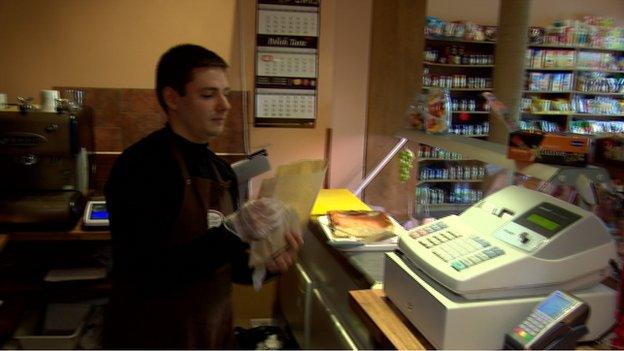
- Published10 March 2015
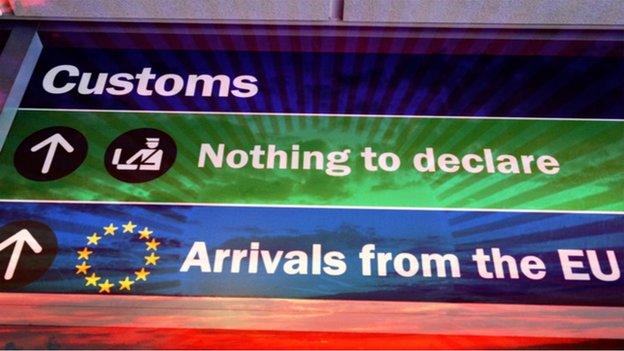
- Published11 March 2015
- Published9 March 2015
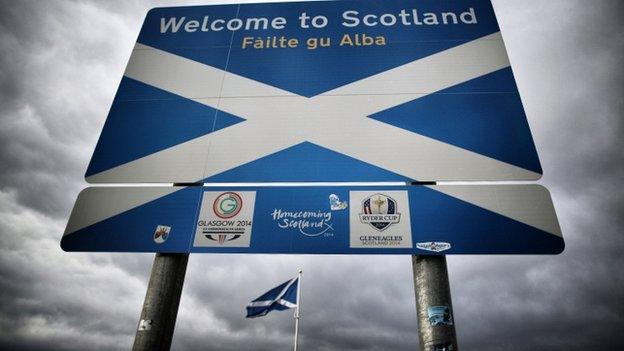
- Published9 March 2015
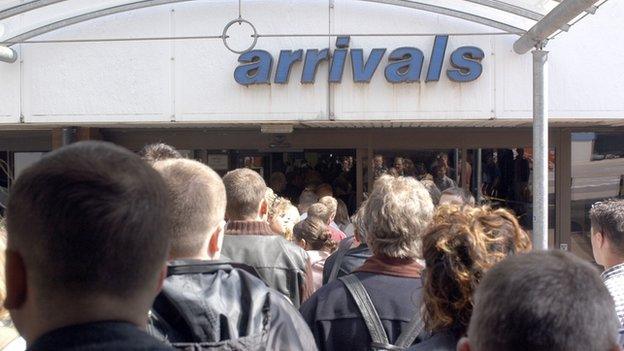
- Published9 March 2015
